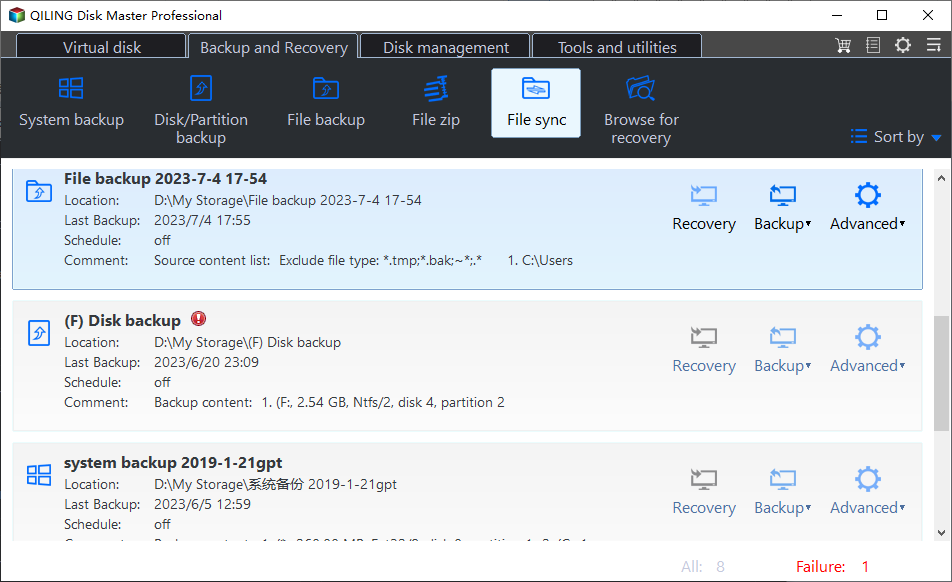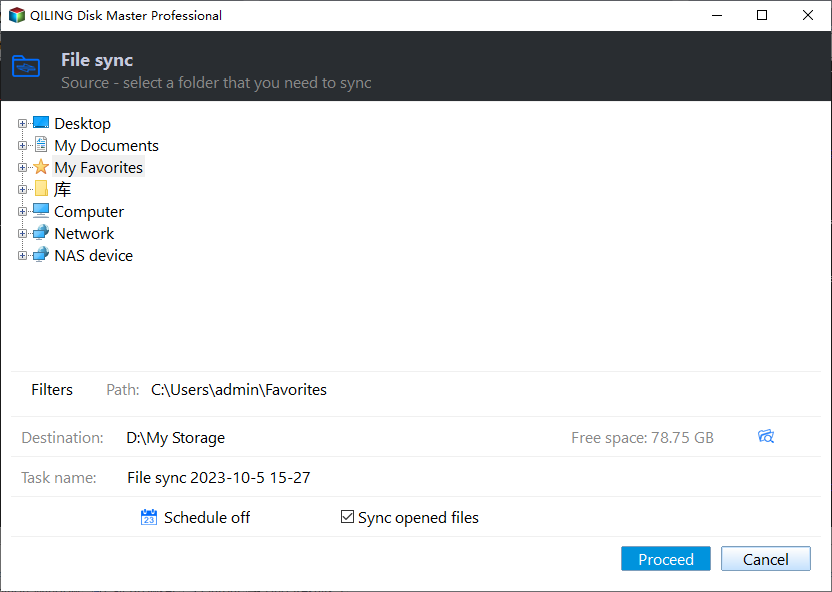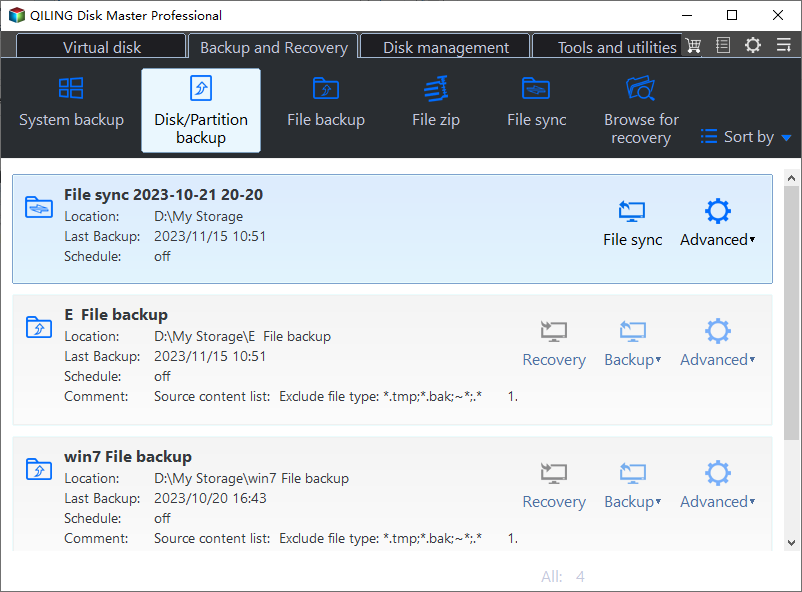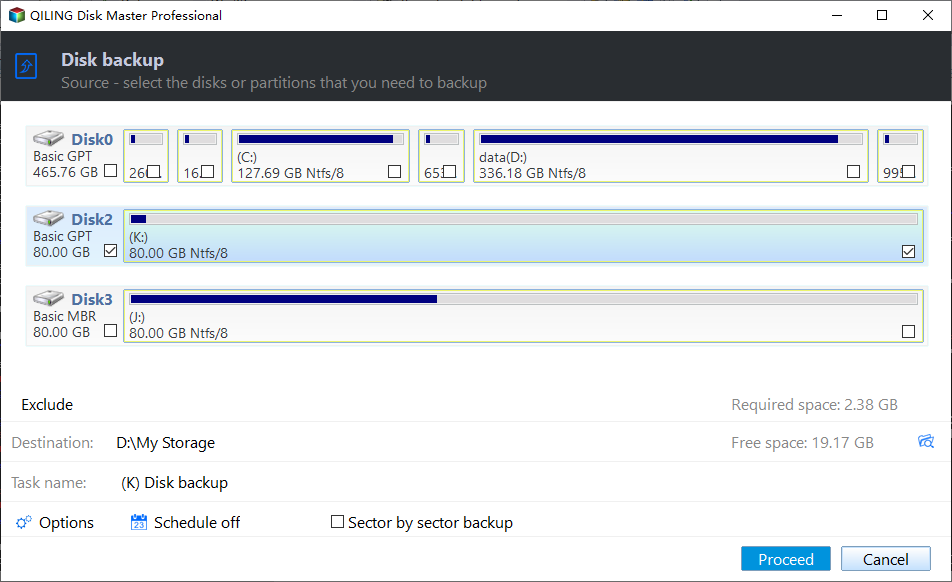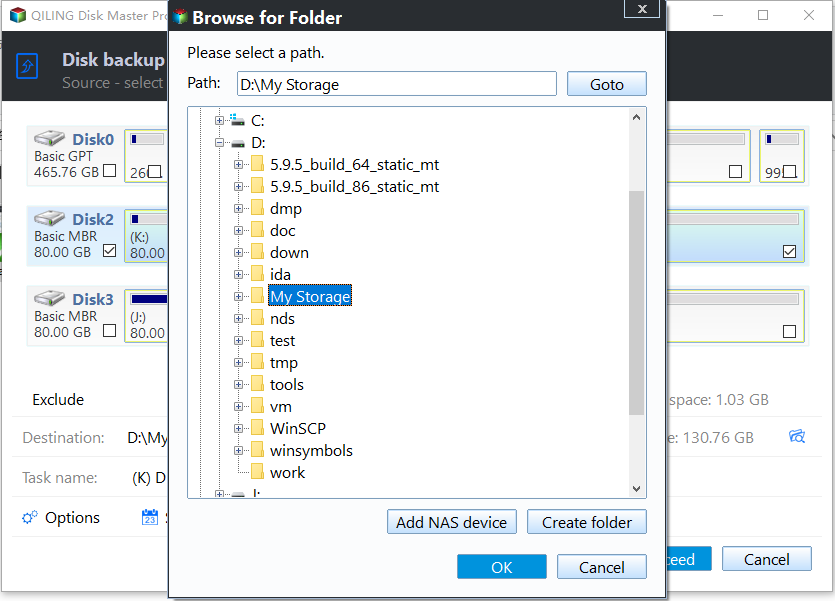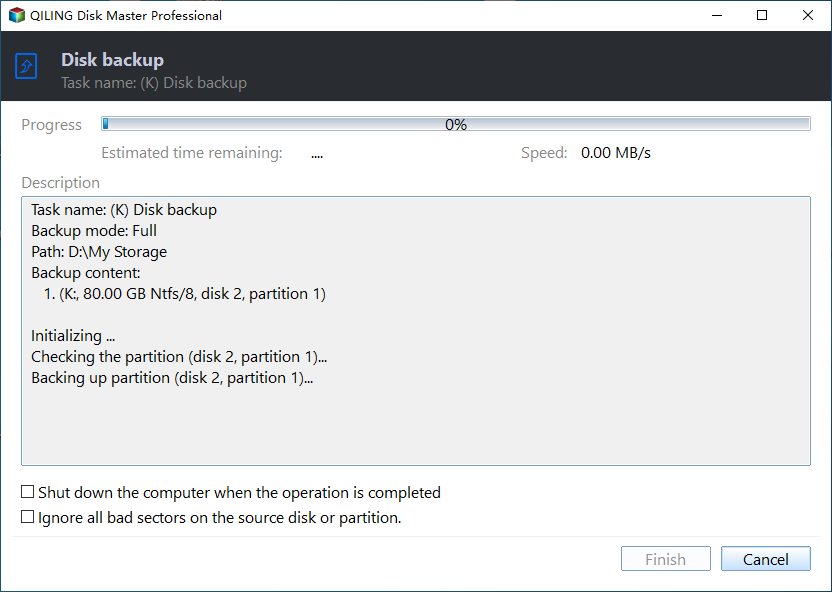Best Free Mirror Backup Software for Windows 11, 10, 8, 7
Mirror backup vs. mirror image backup
A mirror backup is a fast backup method that duplicates specific files and folders from one location to another, without compressing the source data. This process allows for quick and direct access to the backed-up data without the need for a restoration process, making it a convenient option for users.
Apart from mirror backup, another commonly-used method is mirror image backup, which creates a backup of the operating system, a hard disk, a disk partition, or individual files/folders. The backup process generates an image file, typically with a proprietary file type specific to the backup program being used.
Mirror backup and mirror image backup are often used interchangeably, but they have distinct differences. Mirror backup creates a copy of the data, but not the operating system, whereas mirror image backup creates an exact replica of the entire system, including the operating system, data, and applications.
|
|
Mirror Backup |
Mirror Image Backup |
|
Compression |
No |
Yes |
|
Backup time |
Faster |
Slower |
|
Storage space |
Larger |
Smaller |
|
Image file |
No |
Yes |
|
Restoration |
No |
Yes |
What is the best free mirror backup software for Windows PC?
To easily create a mirror backup of your important files and folders, use Qiling Disk Master Standard, the best free mirror backup software for Windows 11/10/8.1/8/7/Vista/XP. This software offers features that will help you create a mirror backup with ease.
- Basic sync: This tool enables you to copy local files from one folder, disk, or computer to another, as well as between external hard drives and USB flash drives.
- NAS/cloud sync: You can sync local folders with Synology, QNAP, and other NAS devices, as well as sync PC folders with cloud services like OneDrive, Google Drive, and Dropbox.
- Auto sync: You can set a sync task to run automatically at a fixed interval, such as daily, weekly, and monthly, allowing for regular updates and synchronization of data.
Get a free download of this powerful mirror backup software to try it out now. For server users, a server edition is also available.
How to create a mirror backup in Windows 11, 10, 8, 7
To mirror local folders to an external hard drive, you can use the built-in "robocopy" command in Windows or a third-party software like SyncToy. First, connect the external hard drive to your computer and format it if necessary. Then, create a new folder on the external hard drive to serve as the destination for the mirrored folders.
Step 1. Connect an external hard drive to your computer and install Qiling Disk Master, then run the software.
Step 2. Select Basic Sync under the Sync tab.
Upgrading to higher editions like Qiling Disk Master Professional unlocks additional sync modes, including three more sync modes.
▶Mirror Sync synchronizes the destination directory with the source directory, ensuring they have the same files and folders. If files exist in the destination but not the source, they are deleted in the destination.
▶Any changes made in the source directory are immediately synced to the destination directory in real-time.
▶ Two-Way Sync: Changes made in the source directory will be reflected in the destination directory, and vice versa.
Step 3. Click Add Folder to select the folder(s) you want to sync to the external drive.
Step 4. To sync files, click the second bar to select the external drive as the sync destination.
Step 5. Click Proceed to begin mirroring local folders to the external hard drive. You can also configure more options and schedule sync if needed.
How to create a mirror image backup via Qiling Disk Master
Qiling Disk Master also allows you to create a mirror image backup in Windows 11/10/8/7. Using the Backup feature, you can create an image file for your Windows OS, internal/external hard drive, partition, or files, and even backup files to Qiling Cloud, which offers 1TB of free storage for 15 days. For example, you can use the Backup feature to mirror an entire hard drive.
Step 1. Launch Qiling Disk Master. Select Disk Backup under the Backup tab.
Step 2. To create a backup task, name the task in the "Task Name" field and click "Add Disk" to select the disk you want to mirror.
Step 3. Select a destination path to store the backup image, which can be a physical device such as a USB drive or an external hard drive, or a virtual device such as a cloud storage service. Various types of backup devices are supported.
Step 4. Click Proceed to begin hard disk mirroring.
To sum up
Now that you know the differences between mirror backup and mirror image backup, you can use the best free mirror backup software, Qiling Disk Master, to perform both types of backups. With this tool, you can mirror any data to any location, such as mirroring a NAS to another NAS, and it's also a great data migration software for SSDs. Give it a try!
Related Articles
- MirrorFolder Software: Mirror Folder in Windows 10
- Real Time File Backup in Windows 7/8/10 to Backup Changes
- How to Mirror a Hard Drive to SSD without Losing Data [2 Ways]
- Best Way to Clone Windows 11 to NVMe SSD
This article provides the best way to clone Windows 11 operating system to NVMe SSD drive in order to gain faster transfer speed and better performance.
